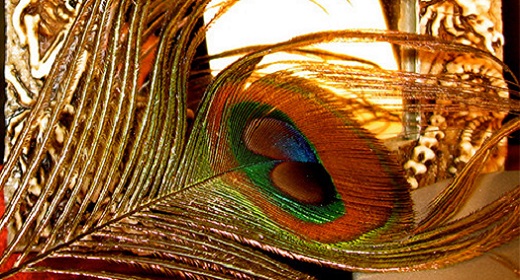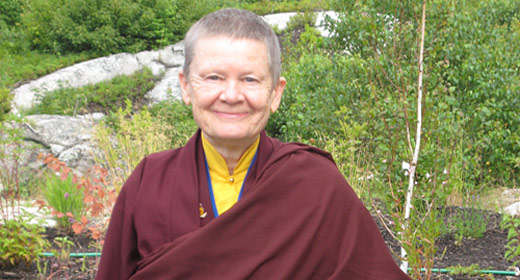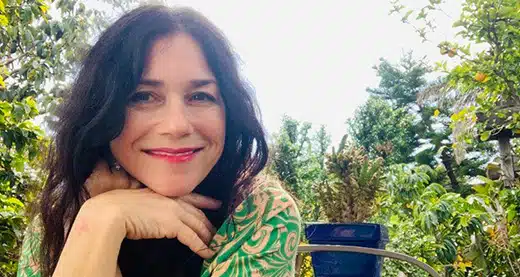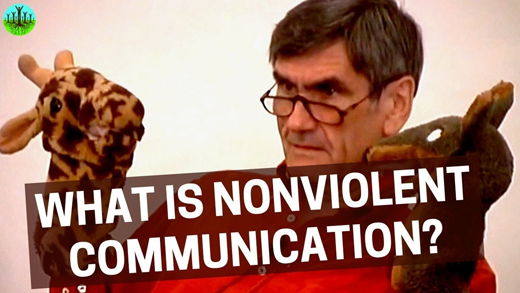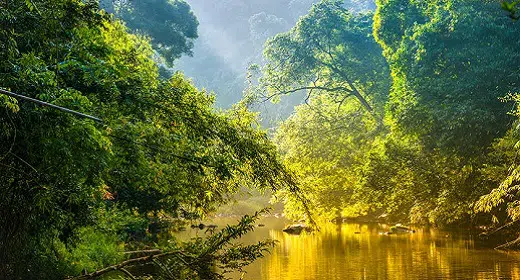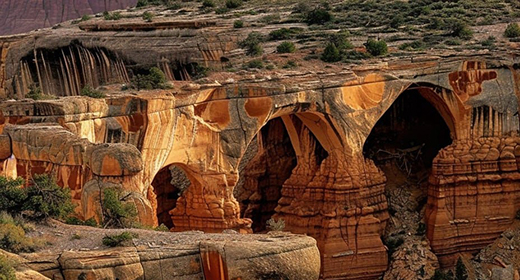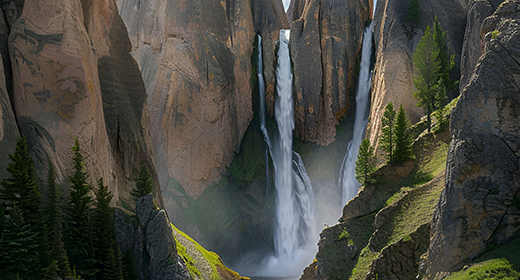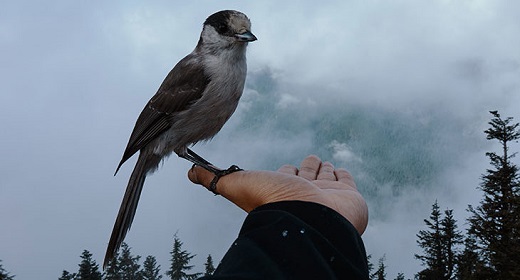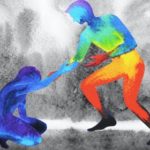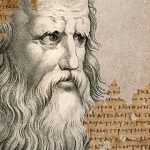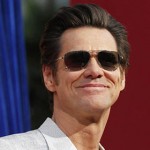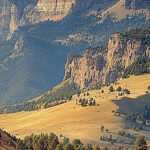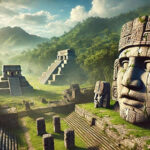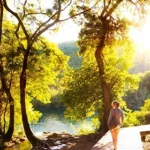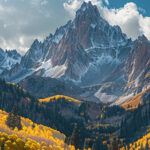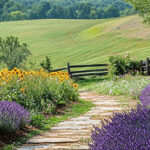by Ajahn Sucitto: I’ve been reflecting on the environmental crisis, and as I do, I find myself in the darkness, as I imagine we all are to some degree. And that says something…
something we shouldn’t brush aside or try to make go away. This is a place for sharing truth—and the truth right now is darkness. I sometimes reflect on how I’ve been practicing meditation, morality, restraint, generosity, sharing, and simplicity for more than forty years with as much integrity as possible. I shouldn’t have to feel this bad, this hopeless, this guilty. Yet when I look at this crisis, I’m in the dark.
Recently I’ve been on retreat in the woods at Cittaviveka Monastery. Back in the 1970s, we were very fortunate to have been gifted about 150 acres of woodland to look after. Much of it had been commercially planted with nonnative trees, and it had become void of wildlife. Consequently, we’ve been attending to it, trying to rewild it, and taking out invasive species. It took at least twenty-five years, but the woodland is making a comeback. The trees are growing, the birds have returned, and there are otters in the water. That makes me feel good—that’s something I was part of. The feeling is more than an idea; it arises because I can smell the fresh air and hear the life around me. I realize, That’s where I belong. I’m on this Earth. There’s love and respect for the natural world, as well as an attitude of restraint toward it. These mental qualities happen naturally through knowing where we are. We’re all in, and form a part of, a living system—it’s not just decorations, or a theme park, or a screen saver. It’s the real thing: it breathes, it’s messy. Something in me lights up at that.
The other morning, as I was leaving my little hut at 5:00 am to get to the meditation hall on time, it was dark, so I had to switch on a headlamp to find my way through the woods. The headlamp has various settings on it, so I thought that I’d turn the setting down, just keep it at “dim.” “Bright” is too harsh, too invasive. You don’t need to see that much apart from the little piece of land where your feet are walking. That’s all the light you need. After a while, I thought, Why not switch it off altogether? There are animals out there that live without headlamps. So I turned it off. It was very dark at first, but after standing there for a while, and getting used to it, the darkness softened into dimness. I heard and smelled the world around me; my skin started to prickle. And my feet began to find their way as I fumbled along. I came alive in the darkness.
As I was coming through the woods, I could sense I was approaching the lake. I heard the quacking of the ducks. Concerned I might walk into the lake, I switched my headlamp on. Quack-quack-QUACK-QUACK! The sound rose in intensity: the ducks—and all the other creatures— knew, Here comes “human.” The one who switches on the shining, hard light strapped to his head. The one who sticks his head out of Nature, looks at it, decides what he wants to do with it, manipulates it, and destroys what isn’t convenient for him. So everything runs away from us—as it should. Like this, we’re an enemy to the planet.
Individually, we probably don’t think of ourselves in that way. We regard ourselves as “animal lovers” and so on. But this view ignores the causes and conditions that have made us such a threat to the survival of the planet and its various life forms. The light of our civilization is so brilliant, so clear, that we assume we know how things are. The light enables us to move much faster, but we can’t fully see where we are, since the brightness blinds us to what’s outside our main beam. Moreover, it’s stuck on our heads.
That’s modern, industrial civilization, with all its amazing stuff and conveniences and our longer life expectancy. But do you think we’re living better lives? I don’t know. Western society in particular, has moved very far ahead with this light. It was during the seventeenth century that the arrival of newly invented machines and devices began playing an important role in the day-to-day lives of a good number of people. And we’ve been increasingly dominating and exploiting everything ever since. For a long time, of course, there seemed to be sufficient resources for us to get away with it. After dominating the natural world, we got around to dominating other humans through conquest, colonialism, and slavery. We’d take over other people’s lands, all the while telling ourselves, “These people are inferior, they don’t count,” or “They’re not fully human anyway.”
We’ve been following that domination–exploitation paradigm for centuries in a trance induced by this clear, rational, narrow beam of light. And now the animals are gone or going, the forests are gone or going, the air is not so good, and a lot of the water is undrinkable. Much of the earth’s topsoil is disappearing because it’s been exhausted through intensive agriculture. Land is also being lost as the water levels rise. Insects—those nasty little bugs we mostly dislike—they’re vanishing too. And now we’re finding out that these insects are important for the welfare and reproduction of plant life, including the crops we eat. We’re eliminating those aspects of life that cannot speak (the earth, trees, animals, and even the air) as well as those who can: the tribespeople, the people of the land who’ve been pushed off or killed so somebody could get their minerals, their timber, their land. It’s our society, our culture, that has been doing this.
This is a lot to take in, isn’t it?
As the Himalayan glaciers melt down, the rivers that they feed will eventually dry up, and about two billion people won’t get their water. What are they going to do? There will be massive social unrest. The economy, it would seem, matters more than quite a few humans—more than the planet. It doesn’t make sense. Still, we tend to think of pieces of land like Britain or France or America as separate places that we can protectively exclude from the disaster “over there.” But what about the air, the water, and the climate in these places? We can’t say: “This is British air only for British people” or “a British climate that stops at Calais or Dover.” So we discover that we’re connected—we’re connected in a crisis.
At this point, we turn the headlamp off and it all opens. And we sense the enormous loss.
I respond to this loss where people feel it in their hearts. I teach ways and means of regaining heart. It’s called Dhamma—the natural order, or truth, that restores people’s personal well-being. Meditation is a big part of this; it gives people a chance to experience some calm. So, yes, I can offer some classical systems for calming the mind. But people don’t necessarily sustain that sense of calm. And when I listen to why they’re not feeling peaceful—whether it’s because of childhood abuse, alcohol, violations, grief, anxiety, despair— focusing on the breath doesn’t cut through that for long. You need a more integrated approach, a fuller alignment to truth, to resolve the wide-ranging effects of the domination–exploitation paradigm.
And yet without meditation, where do we even begin to find a place to stand and speak the whole truth? The four noble truths teach that there is suffering, that it’s caused by human ignorance and selfishness, that it stops when these attitudes stop, and that we have to live in accordance with that. Maybe the truths of suffering and its origin don’t lead to the ceasing of suffering on the sociocultural level right now. But through meditation, through directly accessing the heart, one can at least see and speak the truth of how suffering feels in this moment, where you experience it in your heart and body. A way of action can evolve from that, but the first step is to speak truth, feel truth, live truth.
This is what, by and large, the leaders of the power system do not speak. They do not speak the truth because they don’t feel the truth and don’t live the truth. So the more fundamental extinction that we’re facing is the extinction of truth; all the other forms of extinction come under that. The lies, duplicity, and distracting waffle that one is expected to listen to from apparent leaders is staggering. For the most part, very little they say is associated with integrity and compassion and mutual concern. The Earth is being treated as trash, as a product—as something we can mine and frack and douse with chemicals. And as the Earth becomes disposable, we do as well. That’s what it comes down to. Although things aren’t expressed in this way, that’s how much human life is worth to the power system: refugees, asylum-seekers, migrants, the homeless, the disempowered, and so forth—they’re all just collateral debris on the margins of the Great Way Forward.
So as we speak the truth, maybe we can also seek truth from the darkness. That truth, I believe, will be spoken in a voice that knows what outrage and grief and fear and despair feel like, because they’ve been felt in the heart. That voice will come from a place of sensitivity, concern, and a willingness to sacrifice some time or money or convenience for the welfare of the planet. However small the sacrifice, the gesture of giving up part of what’s mine must be the gesture that’s made over and over again, on different levels. We have to learn to share with each other and with the rest of planetary life, to allow space for natural habitats, and to extend resources to the biosphere we have abused. This must be the direction that we as individuals encourage ourselves to follow. It is supported by the view that meditation offers, that all things are not “me,” not “mine.” To hold them as such is the cause of suffering.
We must turn on the heart-light, not just the headlight. We’ve learned to cover the heart with selfish attitudes and blind beliefs, and to be disconnected from the heart, from each other, and from truth. So we’ve lost that guiding light. Our thoughts swirl, and we become unbalanced. But when we recognize what’s happening, we can decide, I’ll be aware of selfishness, egocentricity, and bias, and investigate this as a cause of my suffering and your suffering. And then I’ll take the risk to let go of that cause, even a little. This means being wise about the imbalance and dysfunction that condition domination and exploitation and bring about so much misery and death. Breaking out of that must be the way out of suffering.
As I was walking along in the dark the other morning, I recognized that things are not absolutely dark. Even at nighttime, there’s some light that allows you to distinguish the shadows of the trees and the deeper darkness of the sky. The vague starlight makes it more like dusk. Dusk is a wonderful time of transition, when the certainties of our daylight lives are moderated. It’s a time when we can’t go so fast, when we have to listen more closely to what’s around us. When it’s twilight, you can no longer blindly follow your own will. You have to be more aware and alert. When you can’t see clearly, you can’t go at your normal speed. But where are we going anyway? Isn’t it as important, or more important, to go well—to live with integrity and respect? So maybe this twilight time is an opportunity to switch into having more attentiveness and respect for what’s here. When I turned off my light, I didn’t want to disturb the animals and the birds, and I found myself wanting to apologize to them for disturbing their terrain, and for the even greater disturbances that have transpired and continue to transpire on our planet. These are the attitudes that can arise in the period of dusk. That’s where we seem to be at this moment.
So what happens now? For the last twenty years or more, the science has been clear that our current lifestyle is having a devastating impact on the planet—and yet this has been mostly ignored. The papers from the Nobel laureates were just filed away. The prognosis was too inconvenient, so it’s been “business as usual.” It’s up to ordinary people, then, to step forward to support the Earth and its inhabitants. Let’s be kind, let’s be compassionate, let’s be moral—and truthful. Let’s accept our fear and work with it, accept our grief and regret and be guided by them. Let’s also accept our rage, but moderate it into quiet strength. And let’s come together. I don’t think there need be a manifesto here, or a great “this-is-the-way-forward idea.” Just be natural. If you’re looking to support nature, be natural. Let light from the heart guide you, because we can gather together around that light.
You’re probably seeing the news reports of the climate change presentations and demonstrations taking place across the world. You see all kinds of people—elderly, middle-aged and young, non-conformists, and businessmen—people who previously wouldn’t have met or shared dinner with each other. I’m heartened to see people rising up to ask for truth. Most of the presenters are not professional speakers or leaders. They have a different voice: there’s no waffle, no promising, no blathering. It’s direct. It has courage and bravely speaks the truth. This is the light of the heart.
At this time, many feel they have to undertake acts of civil disobedience and non-violent disruption to highlight the need for government action. They are criticised for being disruptive, but when we clear-cut forests and douse the soil with pesticides, that’s even more disruptive—for many species, and for the water and air. When indigenous people all over the world had their land taken away from them, when their cultures were destroyed so that the colonists and the industrial magnates could exploit their resources—that was disruptive. When they were slaughtered, or subjugated and deprived of dignity and rights because they didn’t fit into the Great Way Forward, that was more than disruptive—it was catastrophic. The destruction of the environment has been sanctioned, even at such cost to our fellow humans. And it’s still going on. Isn’t that disruptive? And as for the future: when the oceans are flooding our cities, and wildfires incinerating farms and homes; and when the soil can’t produce food, that will be highly disruptive—more so than a delay in getting to work on account of a demonstration blocking the street.
It’s also important to get into what’s left of nature. Really get into it. Walk across a moor for an afternoon—be open to it, whatever the weather. Let yourself be affected by it. Because when you feel nature and adapt to it, when you let it adjust the way you walk, your speed, your directions and plans, then you come to love it. This is your teacher or your mother, and you love it. And what you love deeply, you’ll sacrifice for. You’ll also realize that you didn’t need all the things you’ve been accumulating over the years. We’ve had too much for too long; we’ve been living in a dream, and it’s turning into a nightmare. We have to come out of the dream in order to be whole—and truthful.
May this time wake us up, so that we hear the truth, the ancient truth, that we belong to this earth—and that we have to look after it, and honour it.

